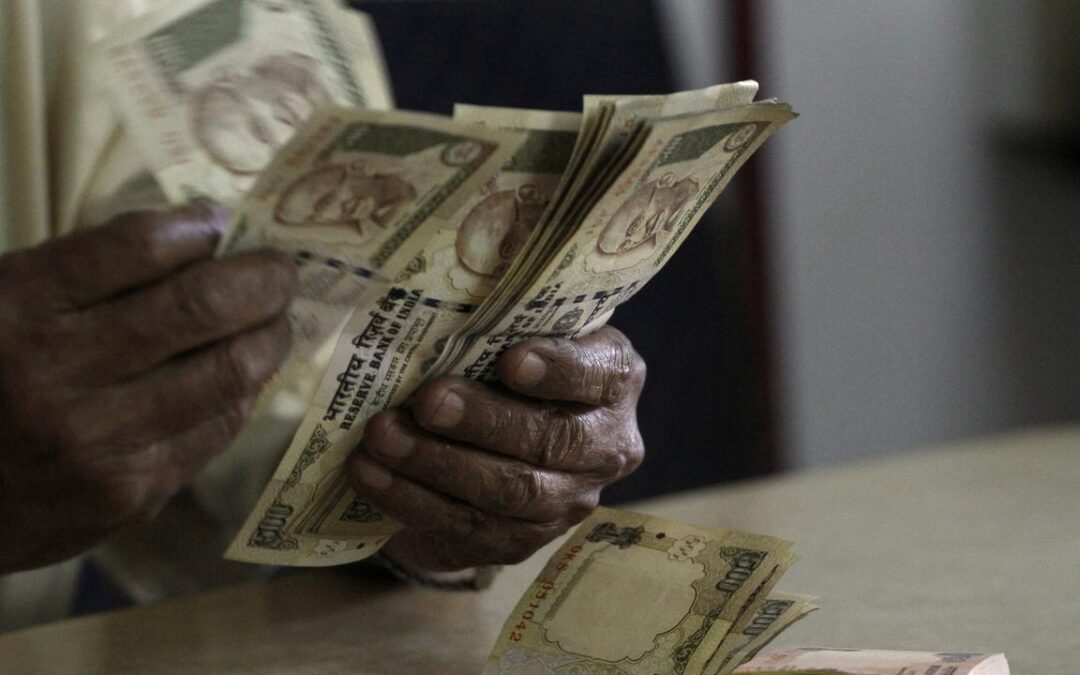
India cuts consumption tax to spur domestic demand
Indian Finance Minister Nirmala Sitharaman has decided to cut taxes on hundreds of consumer items ranging from soaps to small cars to spur domestic demand in the face of economic headwinds from US tariffs.
The goods and services tax (GST) panel approved lowering taxes on the so-called common man items and simplifying their structure, Sitharaman, who heads the panel that includes ministers from all states, told a late night press conference.
The GST was criticised for its complicated structure and numerous tax categories.
To simplify this, the panel approved the two-rate structure of 5 per cent and 18 per cent, instead of four currently that also include tax bands of 12 per cent and 28 per cent.
Sitharaman said the panel approved cuts in consumer items such as toothpaste and shampoo to 5 per cent from 18 per cent, and on small cars, air conditioners and televisions to 18 per cent from 28 per cent.
She said GST will be exempted on all individual life insurance policies and health insurance.
The panel also approved a higher tax of 40 per cent on “super luxury” and “sin” goods such as cigarettes, cars with engine capacity exceeding 1500 cc and carbonated beverages, the minister said.
The move to reduce the consumption tax was first announced by Prime Minister Narendra Modi in his Independence Day speech on August 15.
After the cuts were approved on Wednesday, Modi said “the wide ranging reforms will improve lives of our citizens and ensure ease of doing business for all, especially small traders and businesses”.
The new rates will come into effect on September 22, the first day of the Hindu festival of Navratri.
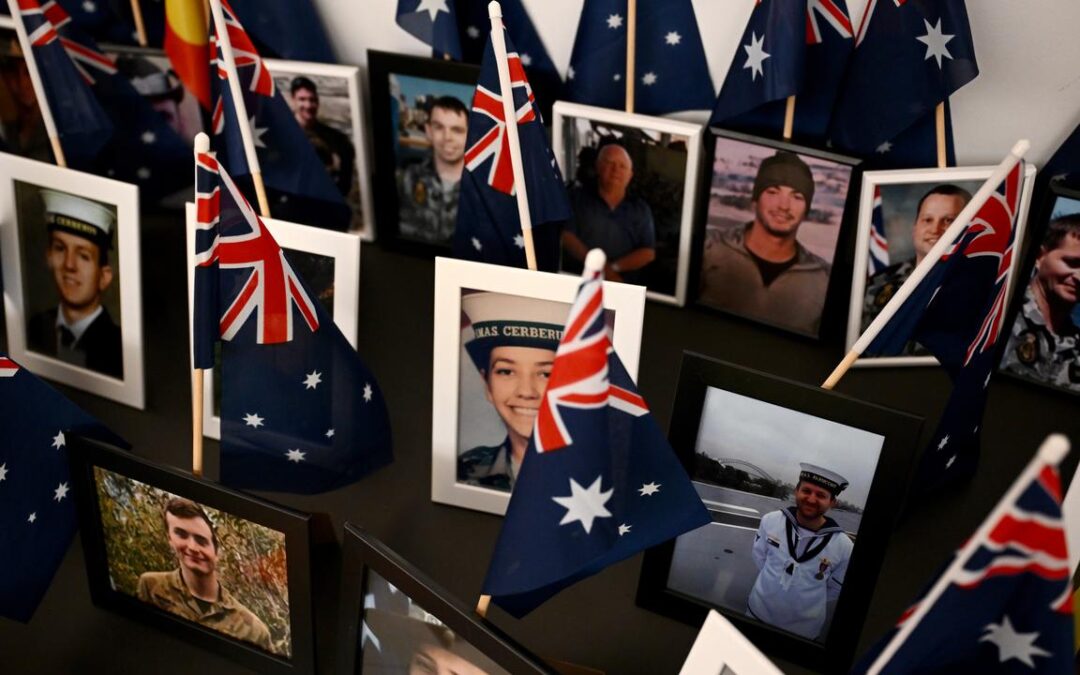
Defence reform update reveals suicide inquiry progress
Only a fraction of more than 100 recommendations made by a defence and veteran suicide royal commission have been delivered.
The federal government will on Thursday lay out its progress on implementing the damning inquiry’s final report almost a year after it was handed down.
Nine recommendations had been completed, with work under way on a further 110, Veterans’ Affairs and Defence Personnel Minister Matt Keogh will tell parliament.
“We want Australians to be attracted to serving our nation in our Australian Defence Force, and confident that they and their families will be well supported by their leaders, their mates and the broader Defence organisation,” he will say.
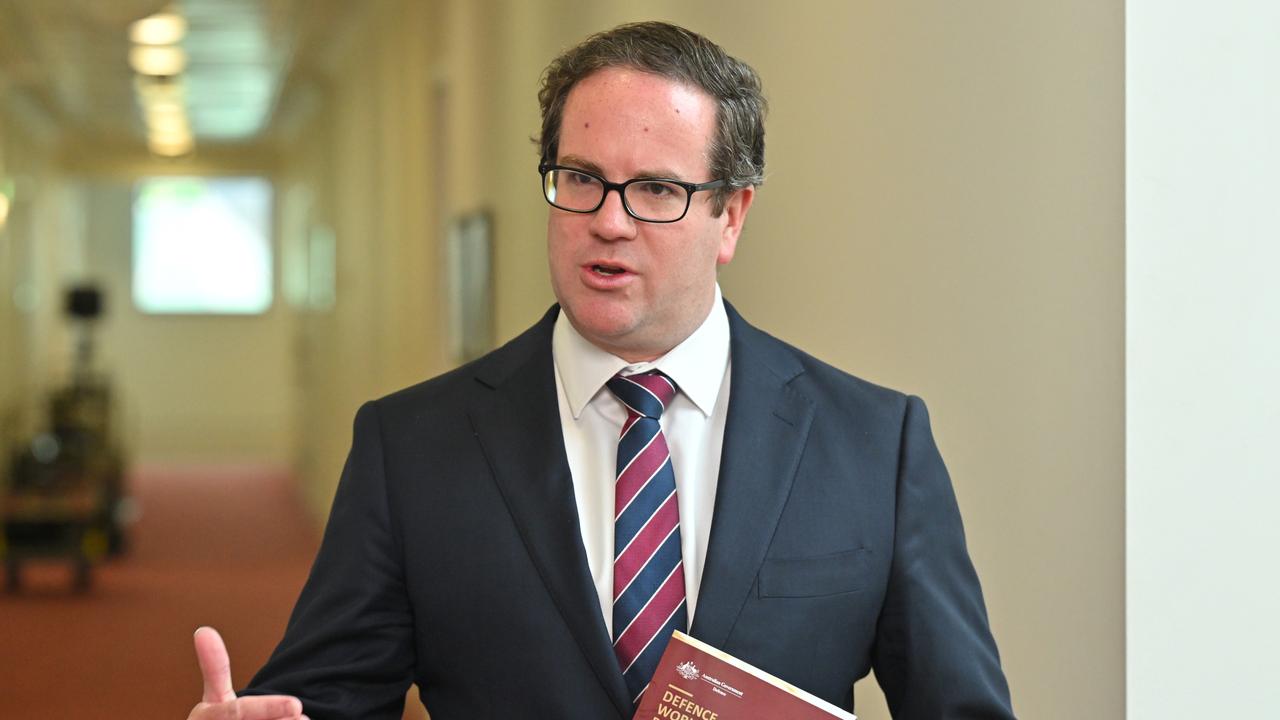
Labor provided its response in December, accepting the overwhelming majority of the 122 recommendations.
A task force set up in 2024 to guide reform found four priority areas, such as the establishment of the Defence and Veterans’ Service Commission and addressing military sexual misconduct.
The commission, legislated within three months of the government’s response, will receive $44.5 million in funding over four years and will help lead the delivery of other recommendations.
It will be operational by the end of September, as the government recruits a commissioner to head the body.
Sexual misconduct remained a “systemic” issue for the Australian Defence Force, with the government agreeing to a standalone inquiry into the issue.
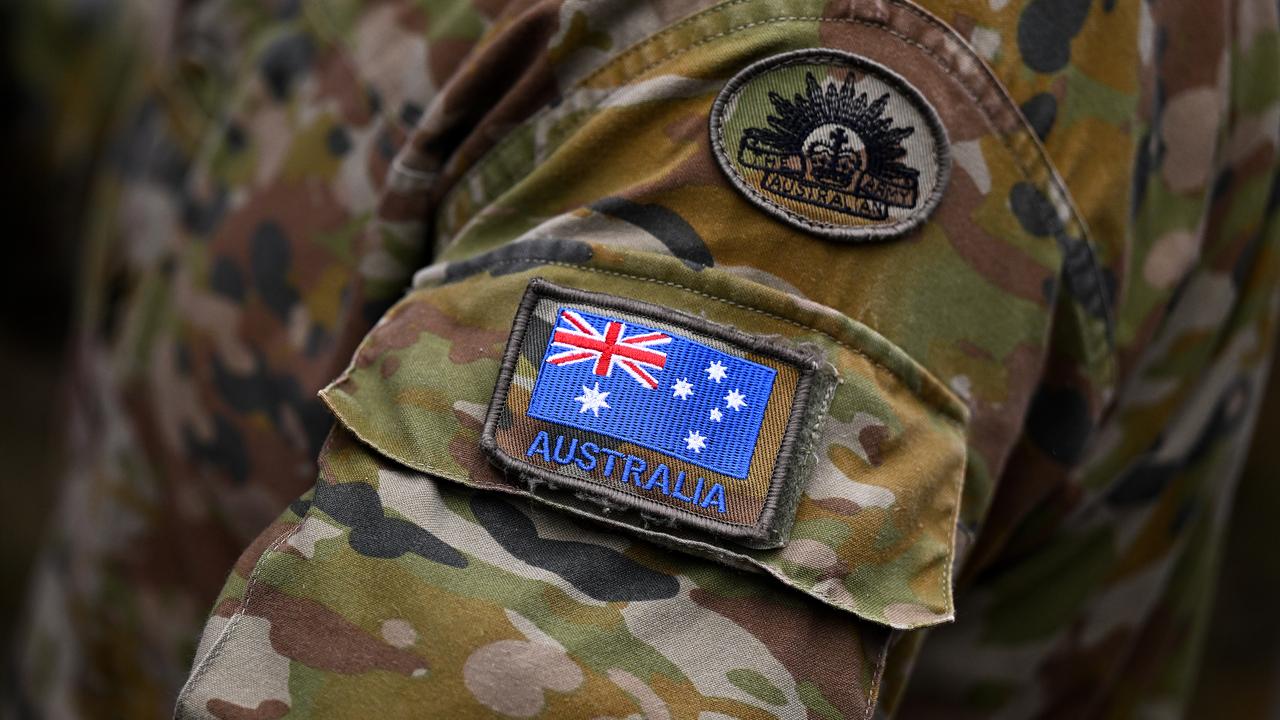
While progress is being made to get the inquiry up and running, no time frame has been set for its start.
Chief of the Defence Force Admiral David Johnston issued an interim directive last November that serious misconduct be taken into account when deciding to suspend or kick out troops.
The government is expected to bring on legislation that will allow defence force personnel convicted of sexual crimes to be booted from the military.
Work is also continuing to ensure troops convicted of serious crimes during their military service get a civilian record of their offending.
This involves co-operation between civil agencies and government departments to feed records into the national police reference system.
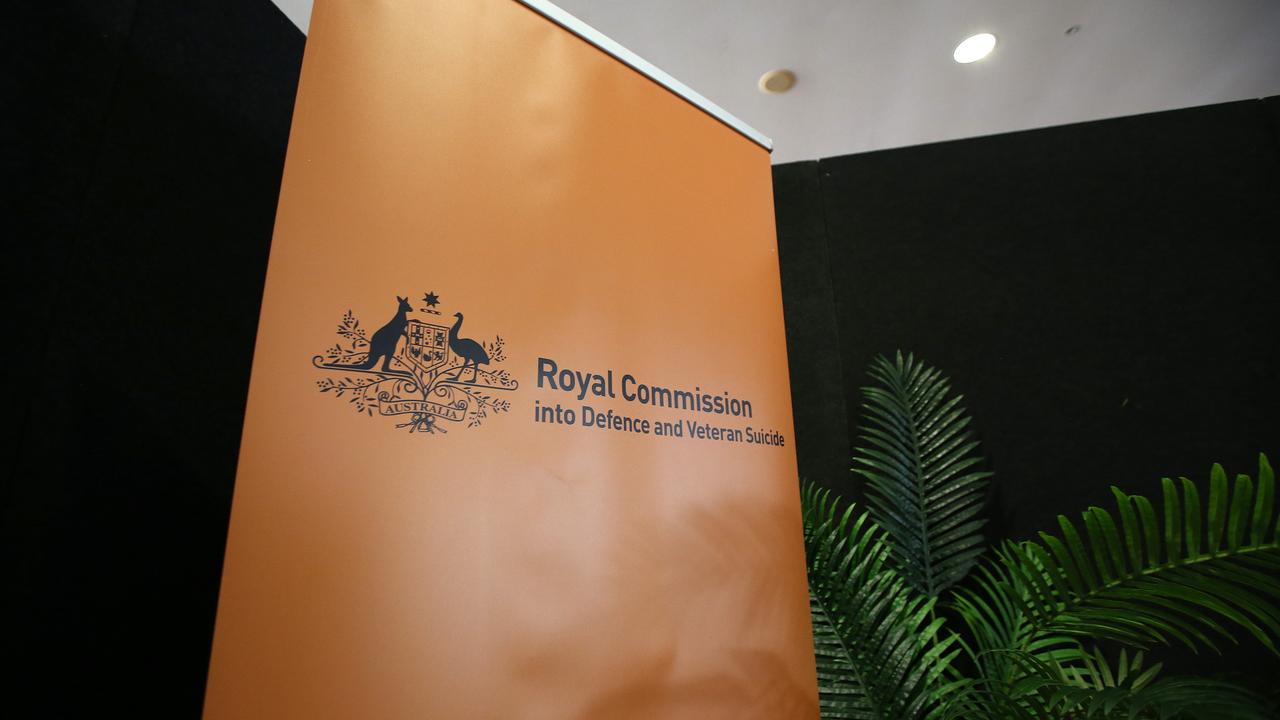
Following the royal commission, an independent inquiry by the Inspector-General of the Australian Defence Force began in 2024 into claims the military justice system had been “weaponised” to cause harm to some personnel.
Mr Keogh will say the inquiry uncovered systems that were “frankly broken, of culture that was toxic, and that simply not enough was being done to support our Aussie personnel in and following service”.
The royal commission found 1677 serving and former serving defence personnel had died by suicide between 1997 and 2021 – more than 20 times the number killed in active duty during the same period.
Lifeline 13 11 14
Open Arms 1800 011 046
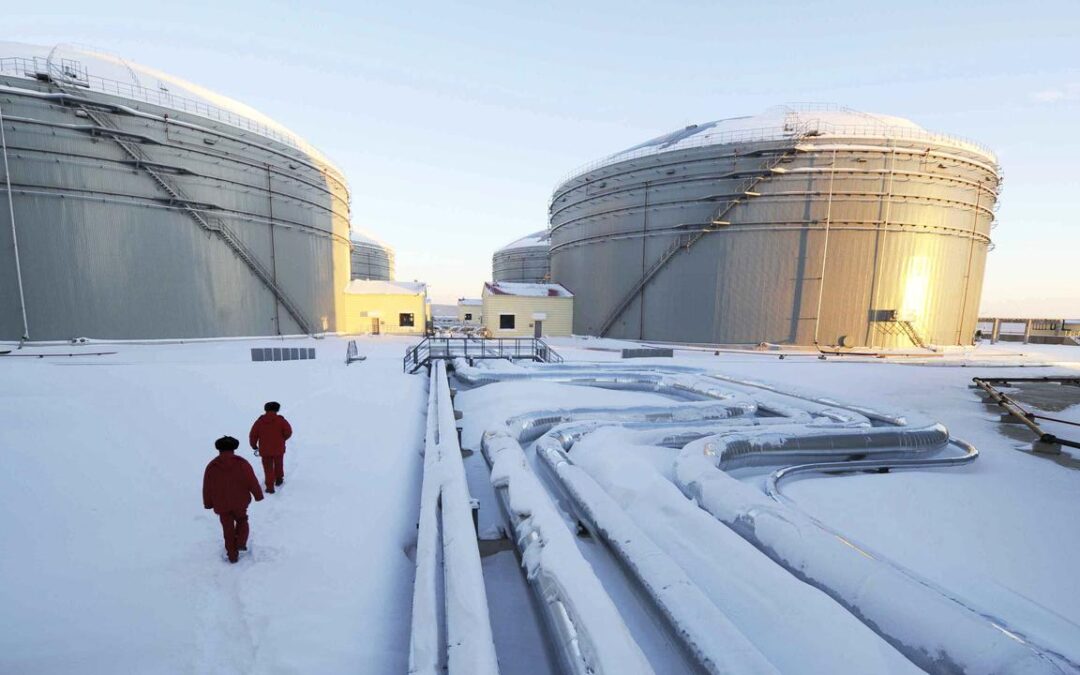
Putin says China to benefit from new gas pipeline
Russian President Vladimir Putin says a planned new Power of Siberia 2 gas pipeline will give a competitive advantage to China because the world’s biggest energy consumer would get gas at a price lower than Europe’s.
Russia and China gave their blessing to the vast pipeline project with a binding memorandum signed during Putin’s visit to China but little is known about the key details of the pipeline and Gazprom said that pricing was yet to be agreed.
“Finally, the negotiating parties found a consensus,” Putin told reporters in Beijing when asked about the Power of Siberia 2 agreement.
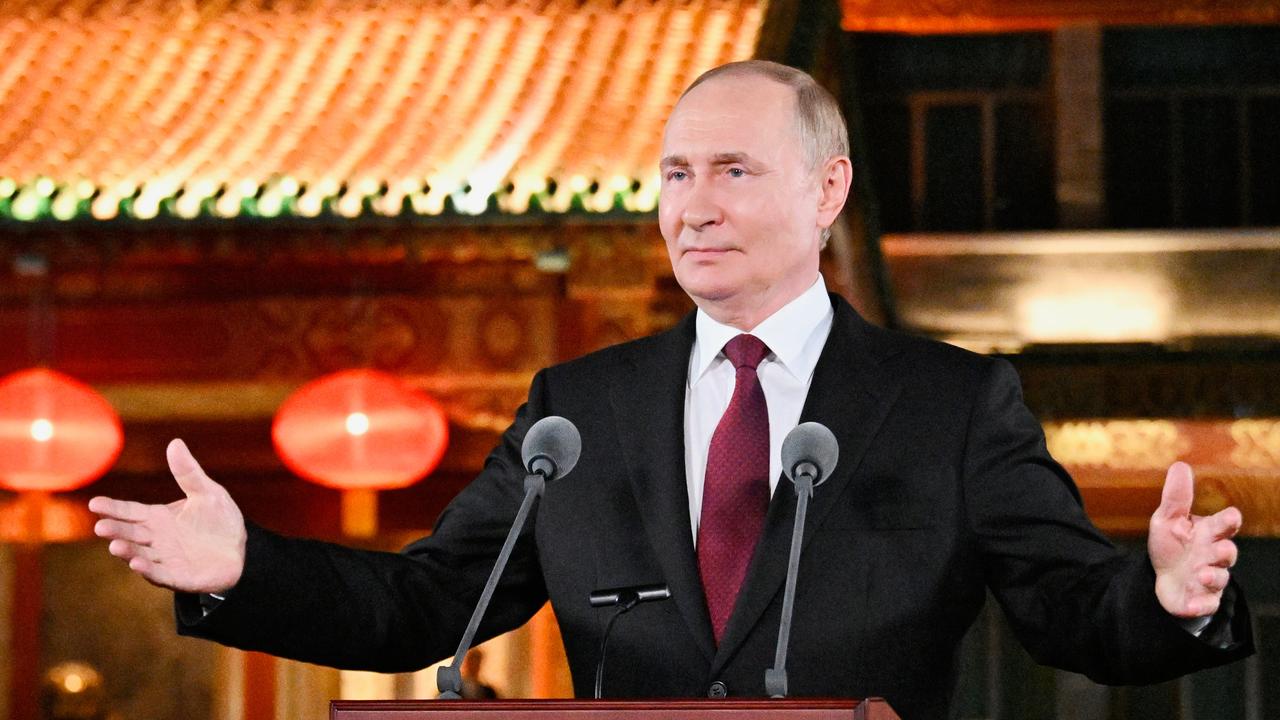
“There is no charity on either side – these are mutually beneficial arrangements.
“And, by the way, the price of this product is also formulated not based on current prices but according to a certain formula, and this formula is purely objective – and market-based,” Putin said.
The pipeline, which could one day deliver an additional 50 billion cubic metres (bcm) of gas per year to China through Mongolia from the Arctic gas fields of Yamal, gives China greater options to hedge against any future reliance on US liquefied natural gas.
After the pipeline is built, Russia would supply a total of more than 100 billion cubic metres (bcm) of gas per year to China, Putin said.
The so-called “no limits” partnership between China and Russia, the world’s biggest producer of natural resources, has strengthened since the US and its allies imposed sanctions to punish Russia for the war in Ukraine.
“The growing Chinese economy has needs, and we have the opportunity to supply these raw materials,” Putin said, adding that talks had gone on for years.
“Of course, this will create competitive advantages for our Chinese friends because, I repeat, they will receive the product at balanced market prices, not at the inflated prices that we are currently seeing in the euro zone,” Putin said.
“Everyone is satisfied, everyone is happy with this result, to be honest, and so am I.”
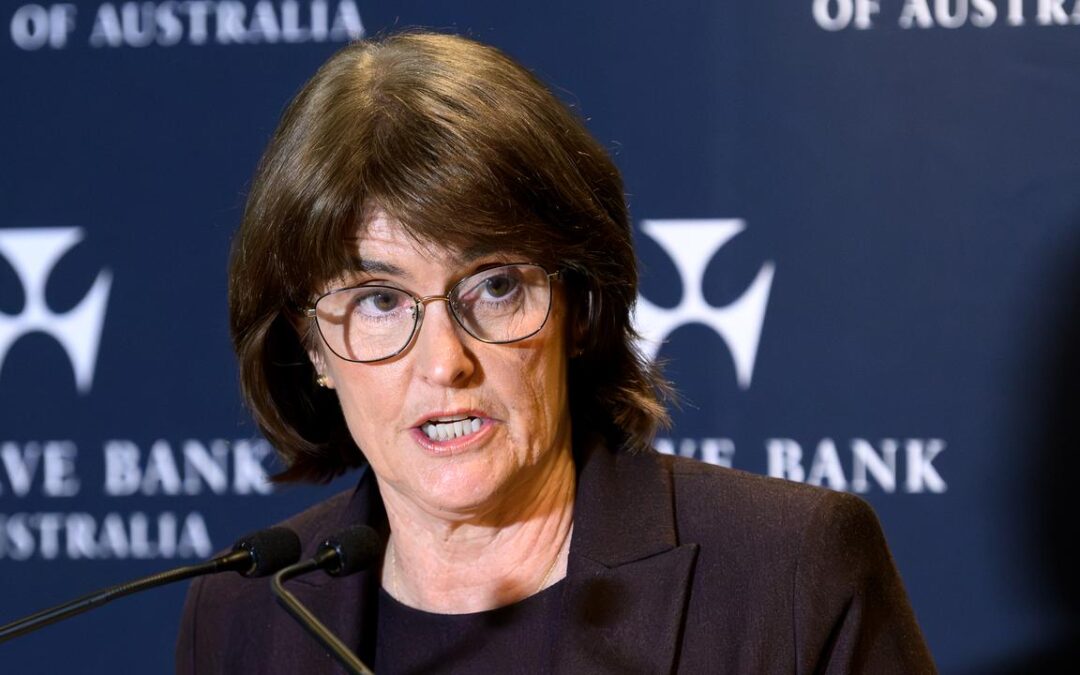
Economic growth may spell the end for rate cuts
Australia’s stronger-than-expected economic growth could dash hopes for further interest rate cuts.
Reserve Bank of Australia governor Michele Bullock insisted she does not know “at this stage” what the uplift in economic growth revealed on Wednesday could mean for interest rates.
“But it does mean that it’s possible that if it keeps going, then there may not be many interest rate declines left to come,” she said.
Ms Bullock delivered the 60th Shann Memorial Lecture at the University of Western Australia on Wednesday, when she was asked about lowering interest rates.
“There’s always one,” she said, as the room full of seasoned and aspiring economists laughed heartily.
Her speech focused on technological change, including the bank’s increasing use of text analytics models providing a “third lens” to monitoring shifting business conditions.
“But we also overlay our own judgement on top of those things.
“I personally don’t see a world where we place all our faith in a model,” she said.
Traders pared back their rate cut expectations after the Australian Bureau of Statistics on Wednesday revealed the surprise jump in the nation’s economic growth rate.
Gross domestic product surged from 1.4 to 1.8 per cent on an annual basis in June, above the Reserve Bank’s forecast of 1.6 per cent.
CommSec chief economist Ryan Felsman does not expect the hotter-than-expected figures to turn the RBA away from its gradual easing cycle.
Markets were still pricing in another 25-basis point reduction to the cash rate in November, but the total amount of easing priced in dropped from 50 to 44 basis points, signalling investors think there is now a risk of less than two more cuts.
In welcome news, productivity as measured by GDP per hour worked climbed 0.3 per cent over the quarter to be 0.2 per cent higher over the year.
But that is still well below Australia’s historical average, limiting the nation’s maximum growth potential.
“The key to that question is really, how do we lift the speed limit on our economy,” Dr Chalmers said.
“We only do that by making it more productive, by making sure that we can get faster growth with low inflation, and that’s really one of the motivating forces behind all of the work that we’ve been doing this term.”
The RBA in August downgraded its assumption for medium-term productivity growth to 0.7 per cent, which caused it to mechanically lower its assumption for Australia’s GDP growth potential to two per cent per year.
Without an increase in productivity growth to about 1.5 per cent, inflation will struggle to stay in the RBA’s two to three per cent target band over time, Mr Felsman said.
“In our view, more business investment and slower unit labour cost growth is required to drive a sustainable improvement in productivity metrics,” he said.
Business investment fell 0.4 per cent over the quarter, although that was partly explained by the completion of some large mining and renewable energy construction projects, said Treasurer Jim Chalmers.
Investment in intellectual property surged 1.9 per cent.
HSBC chief economist Paul Bloxham said the economy was operating near full capacity, and it was not clear where further disinflation would come from without an upswing in business investment and productivity.
“Is this as good as it gets? That’s the question we are asking after today’s GDP print.”
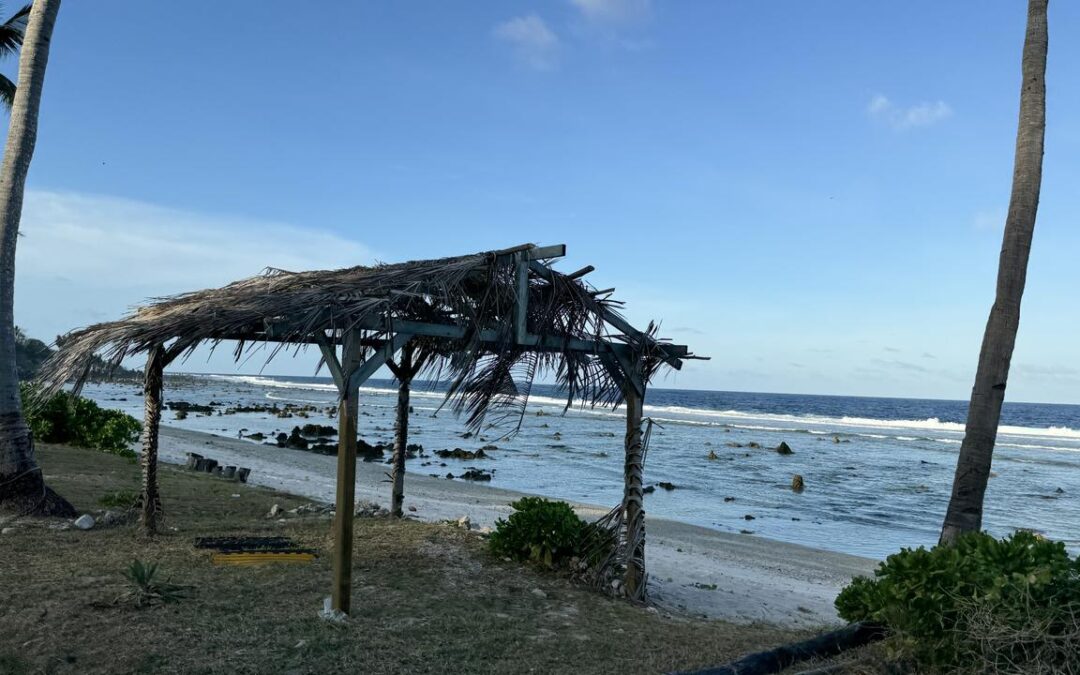
Australia’s deportation deal with Nauru to cost $2.5b
Australian taxpayers will be slugged $2.5 billion over 30 years to deport hundreds of former immigration detainees to Nauru under a “secret” deal.
The Albanese government signed a memorandum of understanding with Nauru, offering more than $400 million upfront and then $70 million each year.
The agreement will allow Australia to transfer up to 354 former detainees, including convicted criminals, to the tiny Pacific island which has a population of about 12,000.
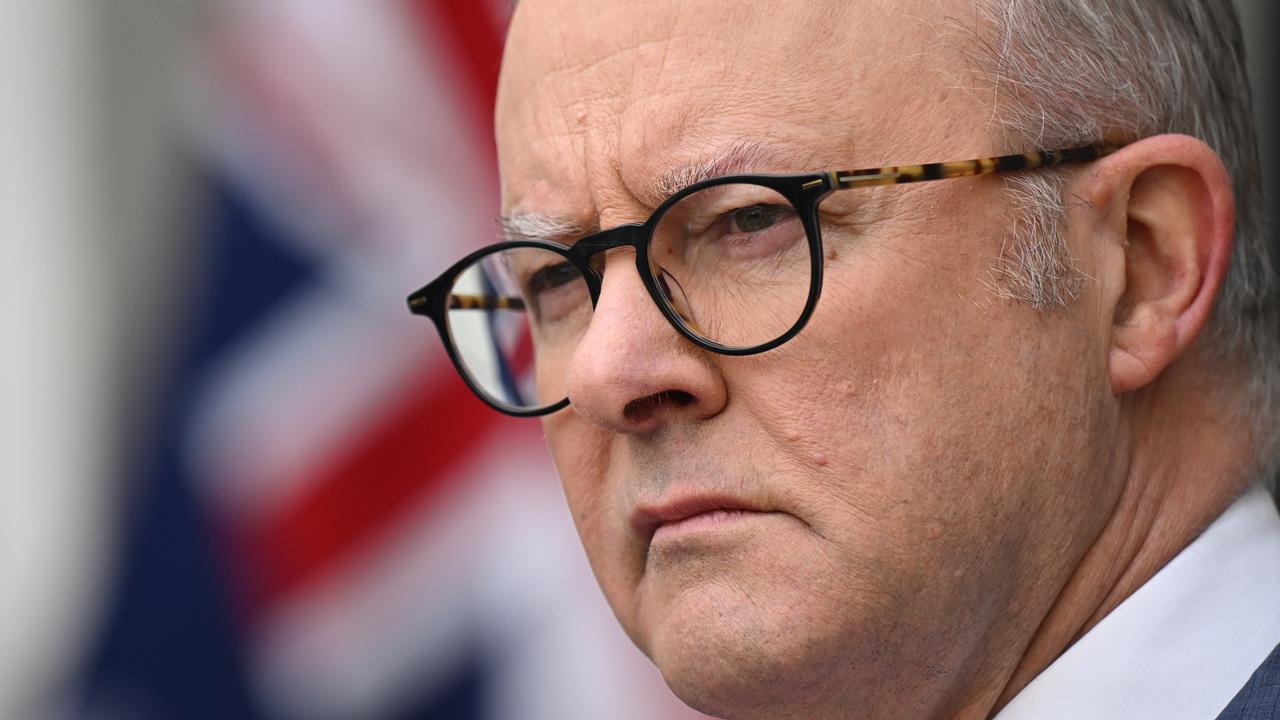
Immigration officials were grilled during a late-night parliamentary inquiry on Wednesday, reluctantly confirming the massive cost of the deal.
Australia could stop paying the annual $70 million sum if Nauru decided it would not accept any more people under the agreement.
Under questioning by Greens senator David Shoebridge, officials also confirmed Labor’s legislation could be retrospective.
During the hearing, he challenged officials who claimed the agreement was not “secret” because it was not available to anybody.
Senator Shoebridge’s bid to force Labor to release the full memorandum through a Senate order was voted down in the upper house.
Anthony Albanese was repeatedly pressed about the lack of detail made public.
“We have arrangements between governments and those arrangements are ones we enter into across the board,” he told reporters in Canberra on Wednesday.
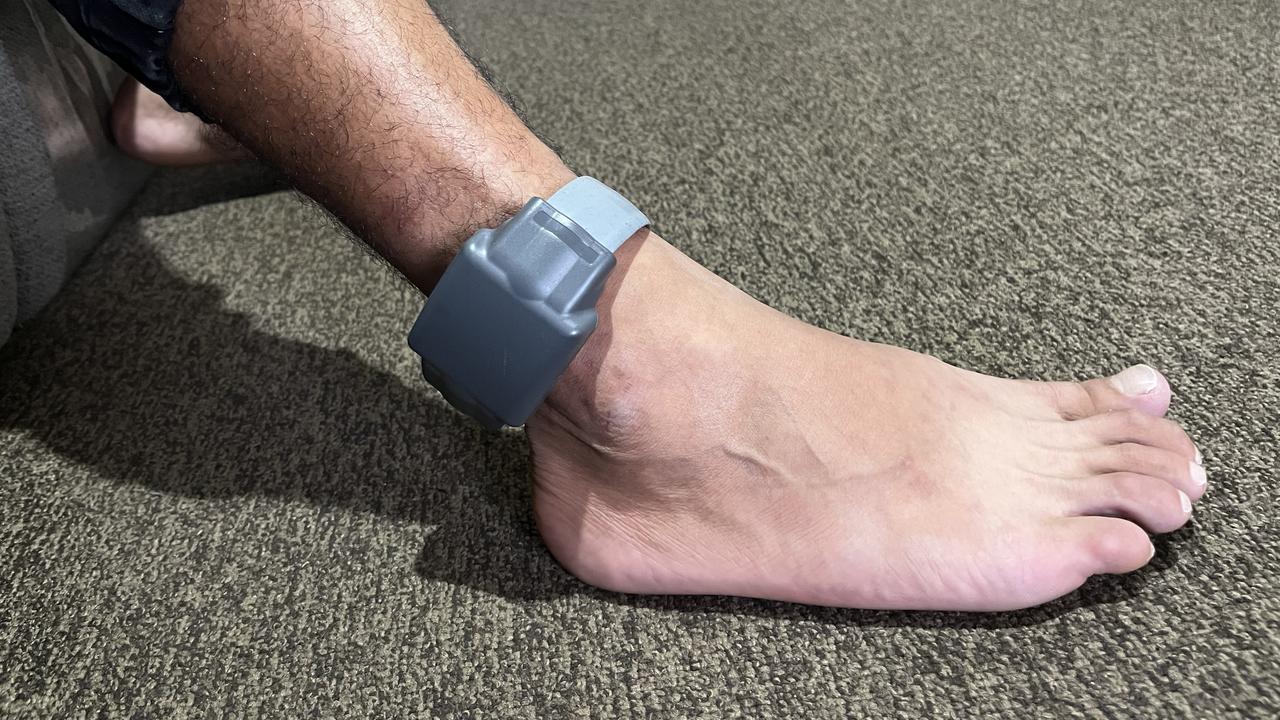
Earlier this week, the prime minister declined to provide more detail about the deal during a TV interview, saying “nothing is secret about it”.
The prime minister’s refusal came after the High Court dismissed an appeal from an Iraqi man who had his temporary protection visa cancelled after being convicted and sentenced to almost six years in prison for detaining a person for advantage.
His temporary protection visa was cancelled in March 2023 and he was taken into immigration detention upon his release from prison a year later.
He was released from immigration detention in October 2024 as part of a landmark High Court decision ruling indefinite detention unlawful.
The group was released as part of the NZYQ cohort as there was no foreseeable pathway for their removal.
Labor was heavily criticised by the opposition for the fallout.
The 65-year-old was taken back into immigration detention in February after Australia applied to Nauru for a visa on his behalf, meaning there was a real prospect of him being removed from Australia.
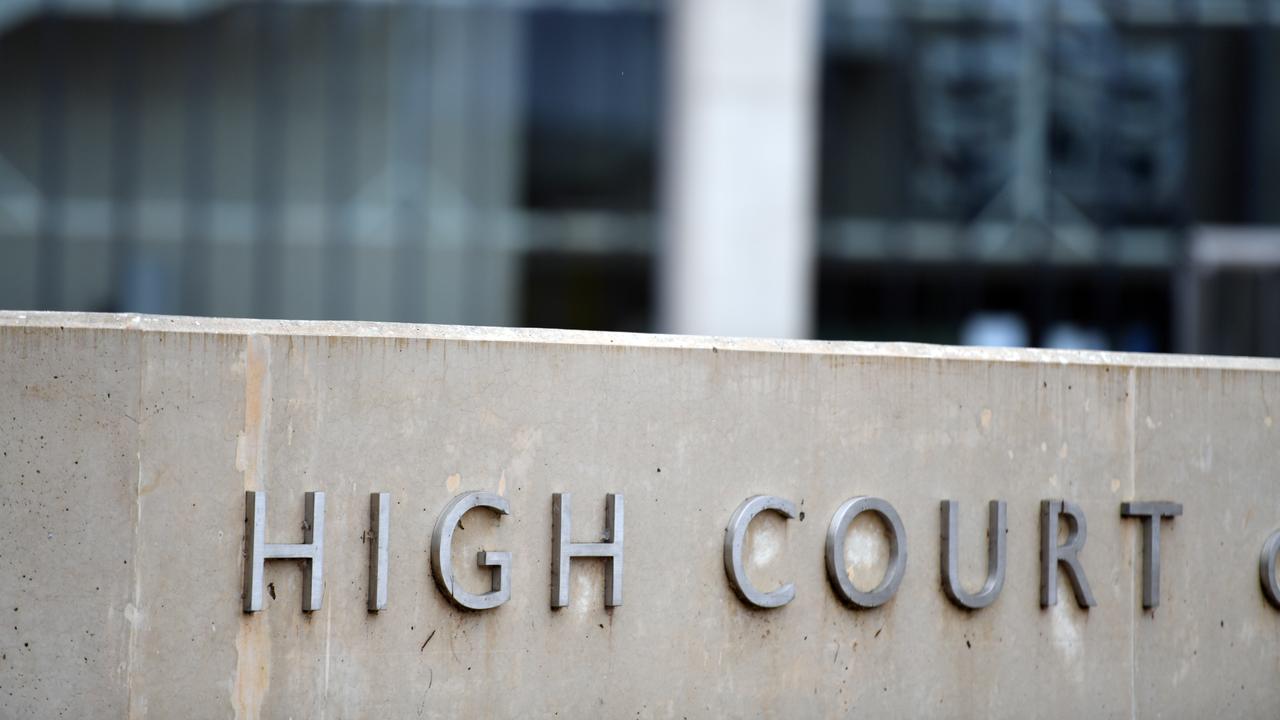
The man is one of three people fighting their deportation to Nauru under laws that allow non-citizens to be sent to a third country if they cannot be deported to their home nation.
Wednesday’s High Court decision would not set a broad precedent for deportations because it was narrowly focused on the man’s circumstances, his lawyers said.
Human Rights Law Centre associate legal director Laura John said the man had lived through “untold horrors” of the Iraq war and faced indefinite separation from his wife and child, homelessness and destitution in Australia.
“Like every person, our client has a right to live in safety and dignity,” she said after the ruling.
“The government has refused at every stage of this process to consider the lifelong consequences of permanently exiling an elderly man to Nauru.”
His protection visa remains cancelled after the court’s decision, but the man has other legal avenues to fight his deportation to Nauru and that attempt will continue in the Federal Court.
Labor is pushing legislation through parliament to curtail procedural fairness requirements to streamline the deportation of the NZYQ cohort to Nauru.
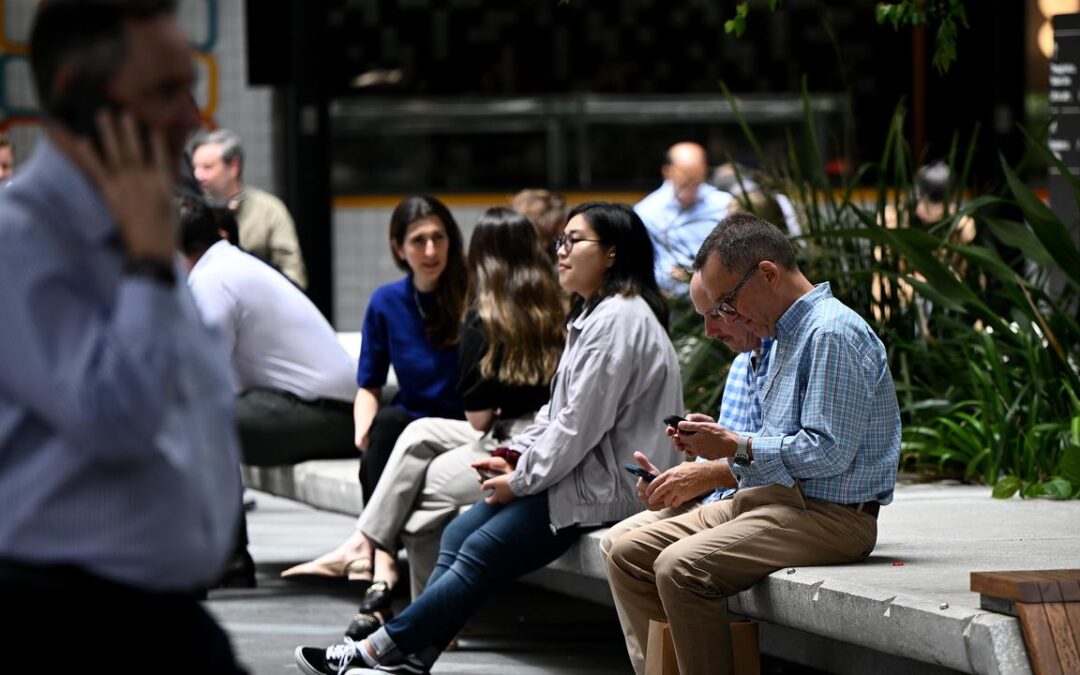
Super fund giant open to performance test tweaks
The head of Australia’s largest super organisation says he’s open to improvements to performance tests for underperforming funds.
AustralianSuper chief executive Paul Schroder said it was “utterly important” for benchmarks on returns to remain, but was receptive to suggestions to bolster protections.
“It’s really important to protect members’ interests and for members to have confidence that the funds they’re in are performing well,” he told the National Press Club in Canberra on Wednesday.
“There should be a performance test and we’re open to it improving.”
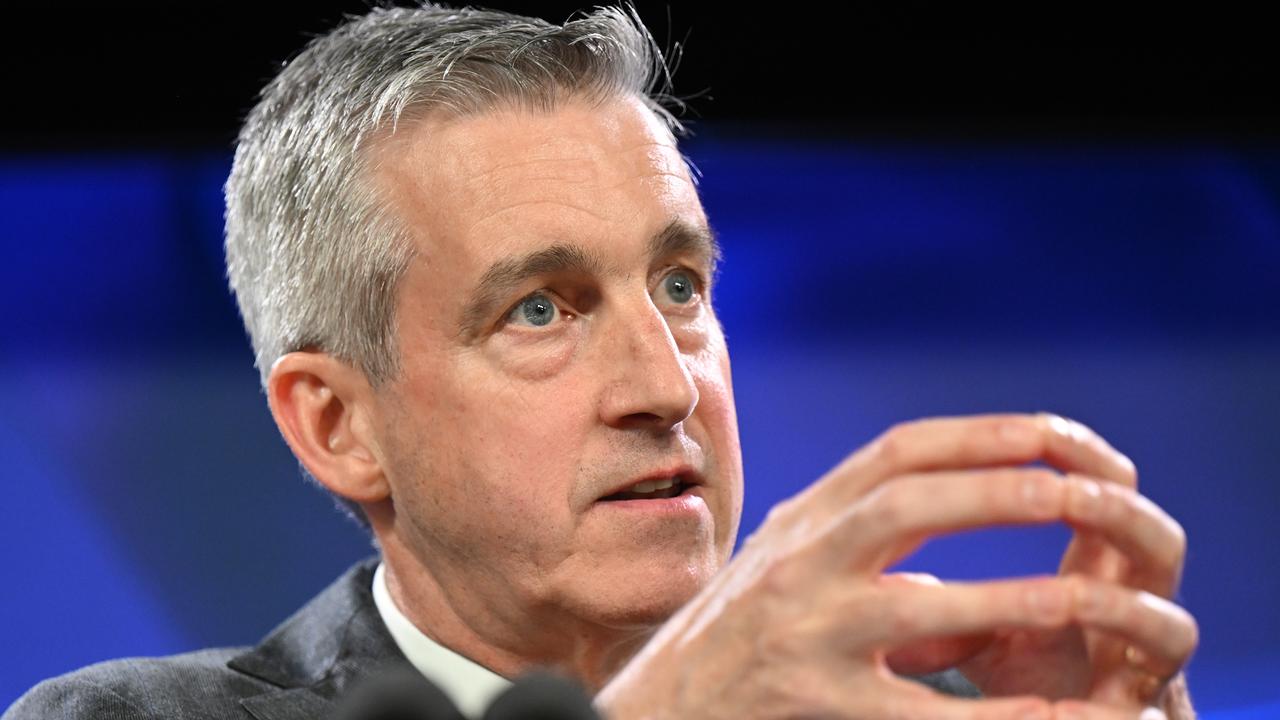
Calls are growing for the performance tests to be tweaked to encourage financing of housing and green technology.
The performance test was recommended by the Productivity Commission to out underperforming funds and cut fees, and became effective four years ago.
Failing the test means a fund must notify members of its poor performance and, if it falls short for a second consecutive year, it will be banned from signing new clients.
Participants at Treasurer Jim Chalmers’ economic roundtable in August urged for changes to be made to the test.
Mr Schroder said forecasts showed that by 2030, AustralianSuper’s investments in Australia might exceed $250 billion, or about nine per cent of the nation’s projected gross domestic product.
He said part of a government’s role was to build things that were important for the nation but won’t make the financial returns super funds need.
“We must break the piggy bank mentality,” Mr Schroder said.
“Super is not a trillion-dollar fix-all.
“It cannot and should not be used to solve every complex national problem.”
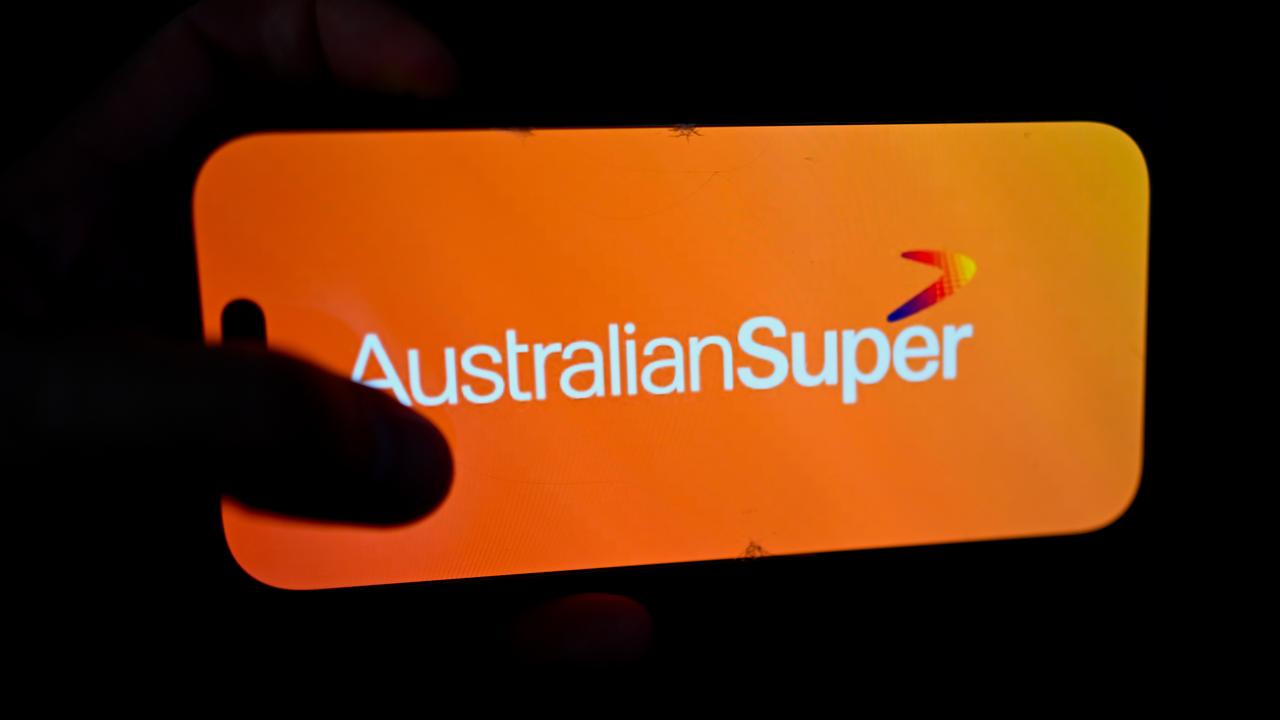
He said the potential for super funds to be an “engine room of Australia’s sustained prosperity is unrealised”.
“I’ve said this behind closed doors and in front of the cameras and I’ll say it again, it would be a disaster for members if governments tried to tell us what to invest in,” Mr Schroder said.
Overseeing the fund for its 3.6 million members, he said the solution required open dialogue about how to better balance risks and make projects worth investing in.
Mr Schroder said the government’s job of determining the direction of the country and its needs should be “mutually reinforcing” with the job of super funds to make productive investments to boost their members’ retirement savings.
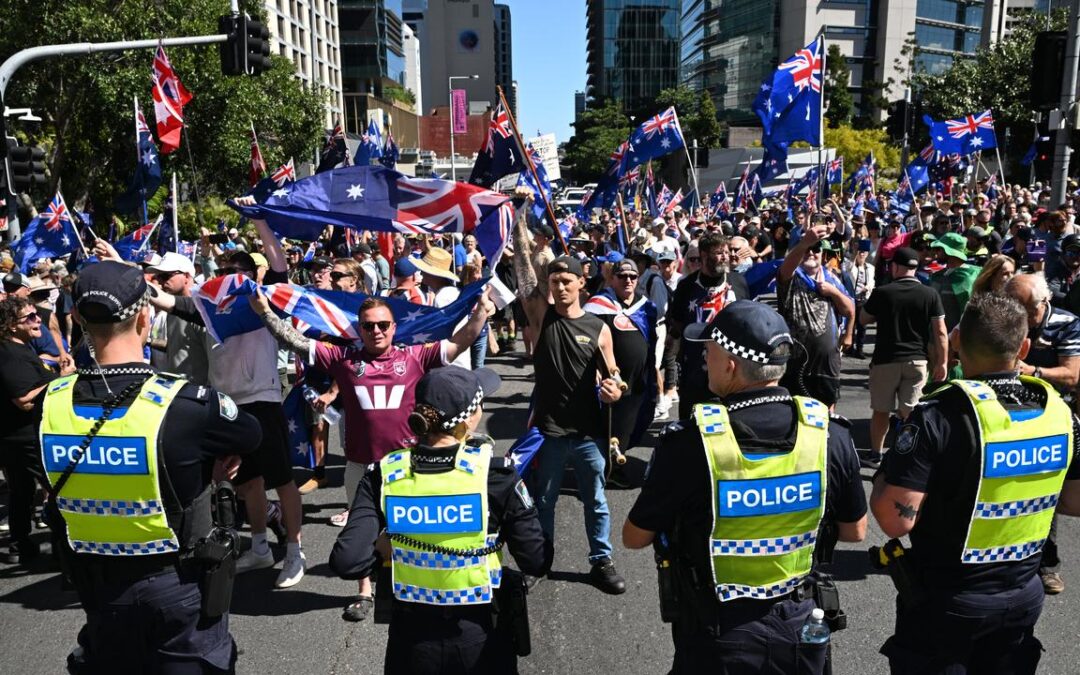
‘Divisive’ coalition blamed for scapegoating migrants
The opposition has been accused of fuelling violent, anti-immigration protests while Labor’s lack of transparency has been blamed for stoking angst towards migrants.
Tens of thousands of protesters marched in rallies across Australia’s major cities on Sunday, calling on the federal government to pause or slow the pace of immigration.
The marches, which were attended by neo-Nazis, have been the subject of bipartisan condemnation.
But Foreign Minister Penny Wong on Wednesday took aim at the coalition, saying it had played a role in blaming migrants for long-standing issues.
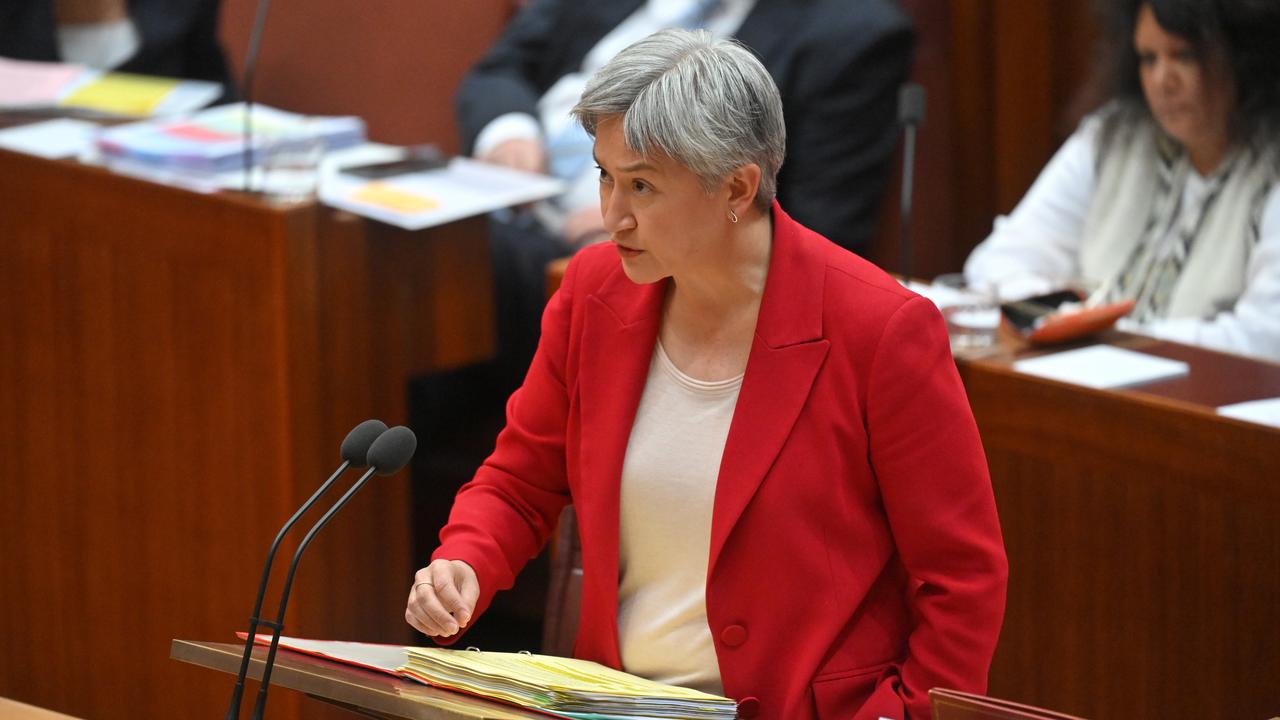
“It’s an old Liberal tactic, we know it well … using migrants as a scapegoat for a housing crisis the Liberal Party presided over,” she told the Senate.
“The Liberals are so busy looking for someone to blame, they’ve forgotten that the majority of Australians rejected their divisive tactics at the last election.
“Australians know we are strongest as a nation when we stand together, when we build each other up, not tear each other down.”
But the way the federal government unveiled a new immigration cap on Tuesday showed how Labor had also inadvertently stirred up anxious Australians, according to former Immigration Department deputy secretary Abul Rizvi.
“The government is just not sufficiently transparent about what its long-term plans for immigration are,” he told AAP.
“The government has essentially just stopped explaining what it’s doing.”
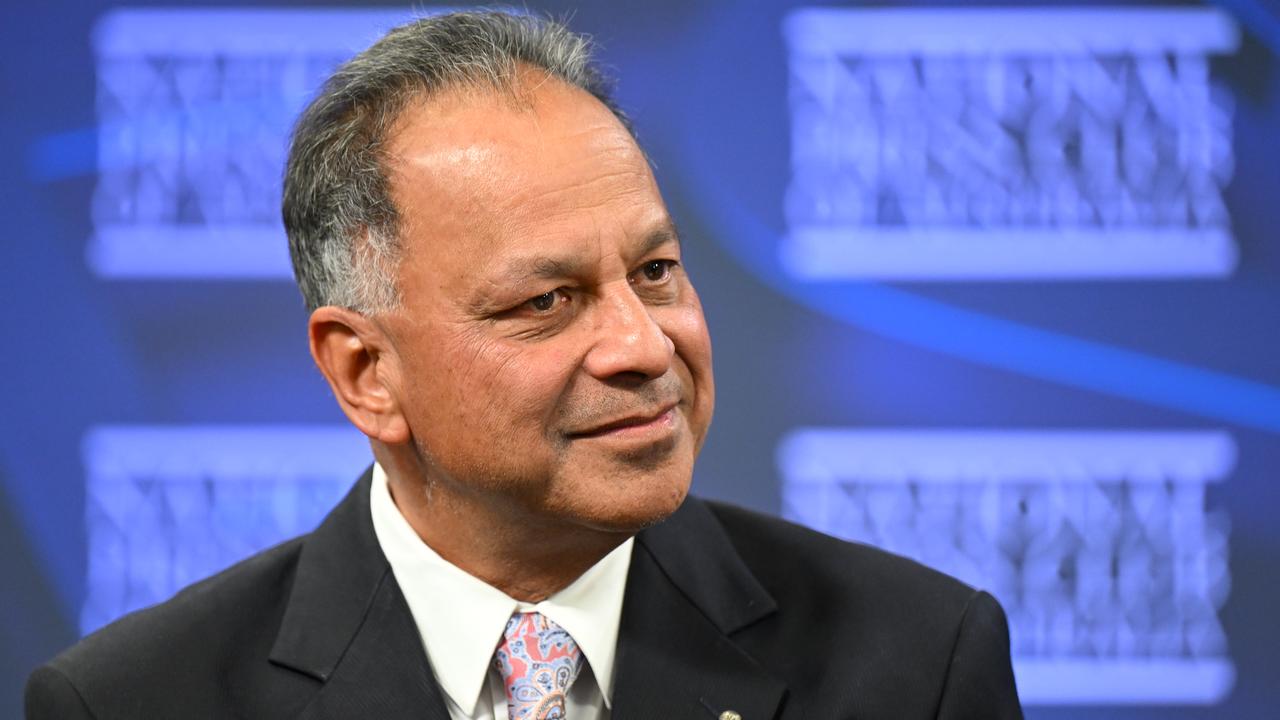
It set the permanent migration program intake for 2025/26 at 185,000, the same as the previous financial year.
But the three-sentence government press release contained little detail about skilled or partner visas, making it impossible to tell what it would do about booming demand in those areas, Dr Rizvi said.
Opposition Leader Sussan Ley said the latest immigration target was still too high, but she maintained the issue was not about migrants themselves.
“It’s about getting the balance right,” she told the Nine’s Today program.
As prominent neo-Nazi Thomas Sewell faced court accused of storming the Indigenous Camp Sovereignty on Sunday after the Melbourne rally, Senator Wong celebrated the nation’s multiculturalism.
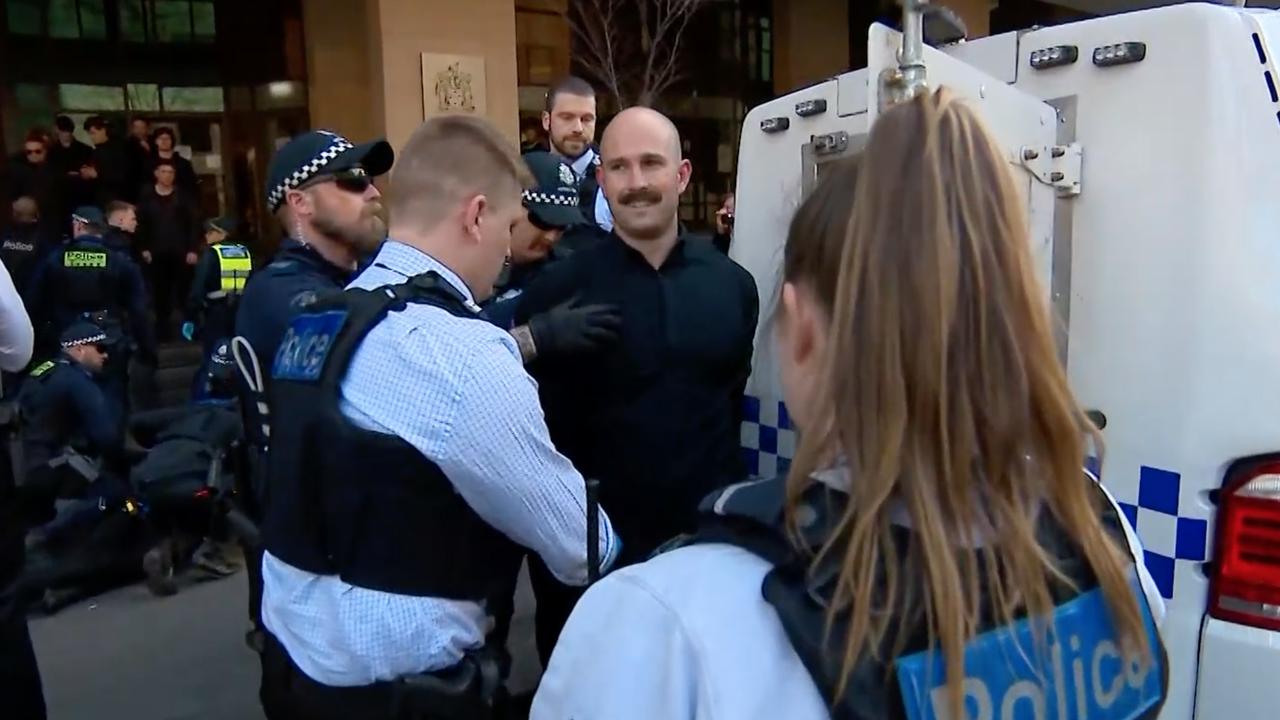
“Neo-Nazis and anti-immigration rallies are not who we are. These are not Australian values,” she said.
“We are a nation that welcomes different races, different faiths, different views and we are united by a respect in each other’s humanity and for each other’s right to live in peace.
“Let us always choose unity, not division.”
Factually incorrect statements about growing migration numbers contributed to the anti-immigration sentiment, including promotional flyers for Sunday’s rallies that used false claims to fuel anti-Indian rhetoric.
Federation of Indian Associations of Victoria president Vasan Srinivasan said many protesters just needed to get to know his community.
“We are all here for one reason: a peaceful, happy life.”
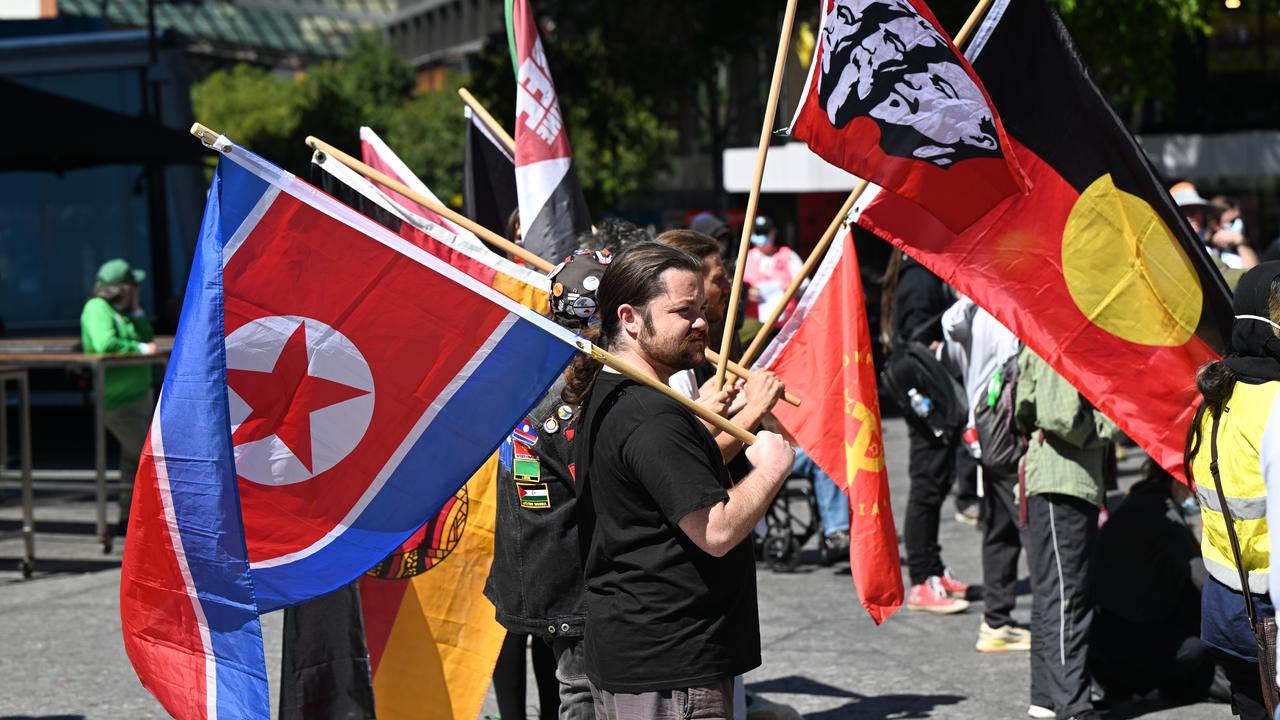
Many within the Indian community are skilled migrants, arriving in Australia as doctors or with engineering qualifications.
One of the best represented occupations in Australia’s migration program were nurses, who were in high demand as the population aged and the health workforce buckled under high attrition, Dr Rizvi said.
Migrants also take on hard, less-skilled work many Australians don’t want to do, such as fruit picking and farm labour.
“We need to remember that the bulk of students and working holidaymakers can’t get the dole,” he said.
“If they don’t get a job, they don’t survive.”
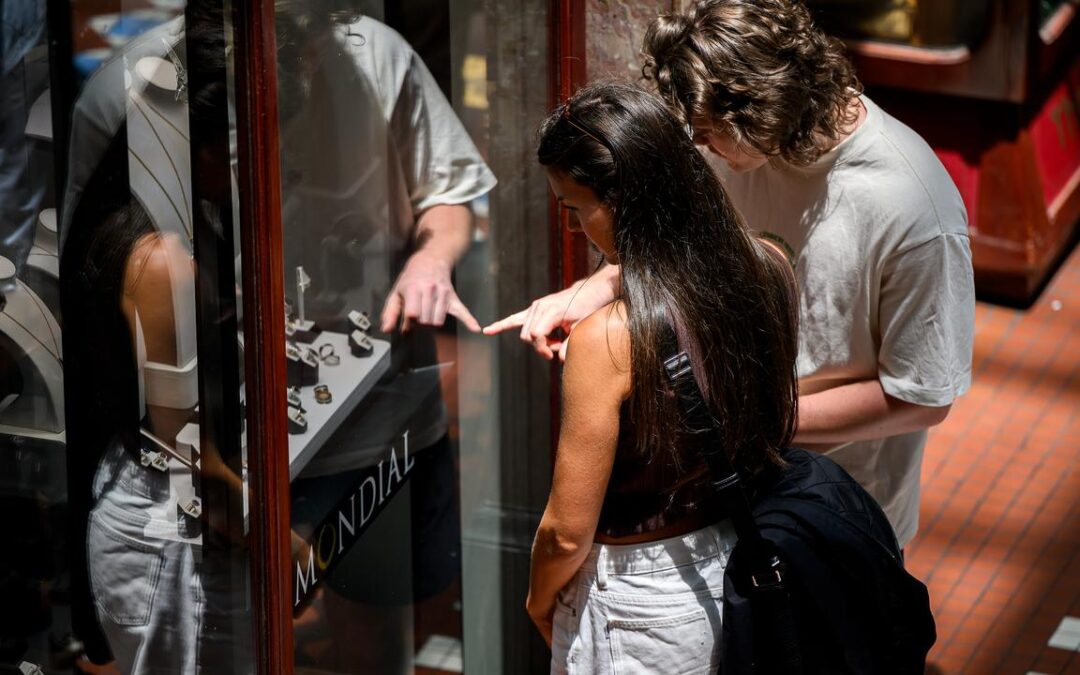
Consumer boom drives surprise jump in economic growth
A jump in household consumption has driven Australia’s economic growth to the fastest rate in almost two years, offering the strongest sign yet that a long-anticipated recovery in the private sector is on track.
The nation’s gross domestic product grew at 1.8 per cent over the year to June, the Australian Bureau of Statistics reported in quarterly national accounts released on Wednesday.
That was above the expectations of economists and the Reserve Bank of Australia, which forecast the economy to grow by 1.6 per cent on an annual basis.
Analysts didn’t foresee such a large jump in consumer spending following a subdued start to the year.
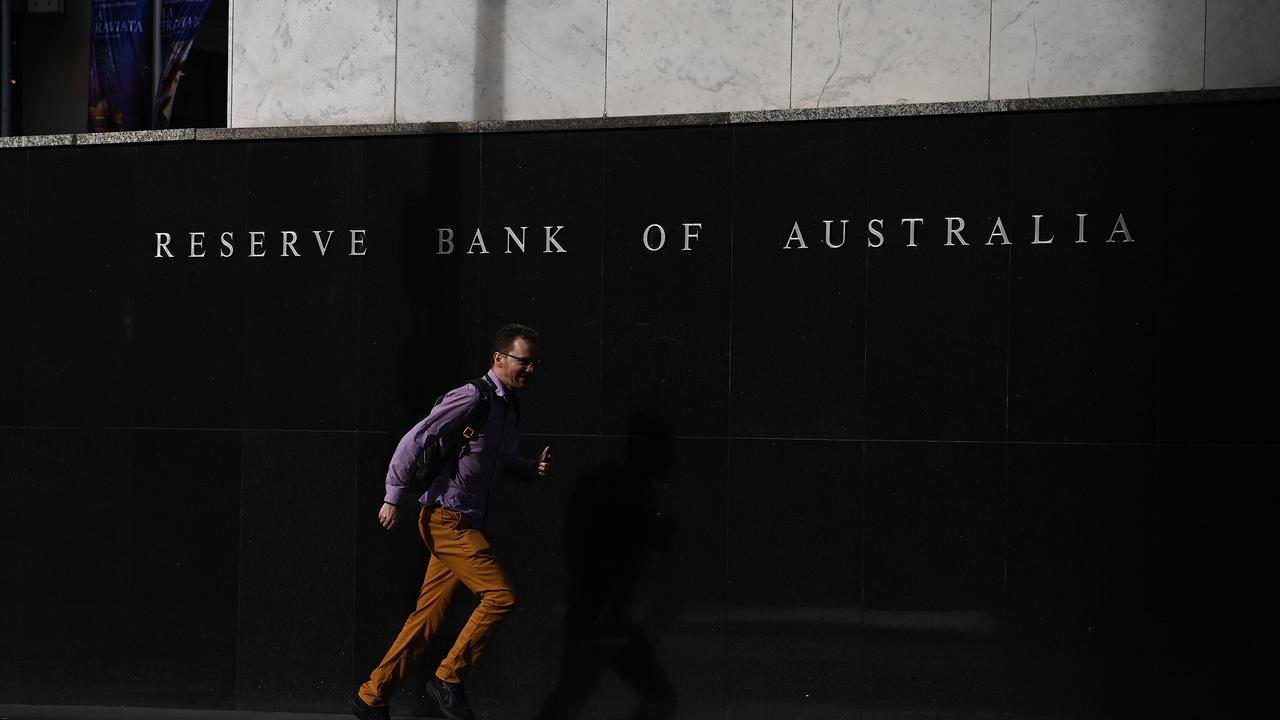
Household consumption rose 0.9 per cent over the three months to June.
The previous quarter was impacted by weather events, ABS head of national accounts Tom Lay said.
“End of financial year sales and new product releases contributed to rises in discretionary spending on goods including furnishings and household equipment, motor vehicles and recreation and culture goods,” Mr Lay said.
“Households took advantage of the proximity of Easter to ANZAC day to extend their holiday break, resulting in rises in discretionary services such as hotels, cafes and restaurants and recreation and culture services.”
By contrast, the public sector – which had previously been propping up the economy – was notably weaker, with public investment the biggest detractor from growth, down 3.9 per cent.
The result was strong evidence of a private sector recovery, ANZ senior economist Adelaide Timbrell said.
“Although the data is lagged, we expect the RBA will view the GDP release as a sign that consumers are recovering, which may add caution around rate cut decisions in the near term,” she said.
The quarterly economic pulse check comes after the RBA cut interest rates for a third time this year in August, which is expected to boost growth as borrowers gain greater buying power.
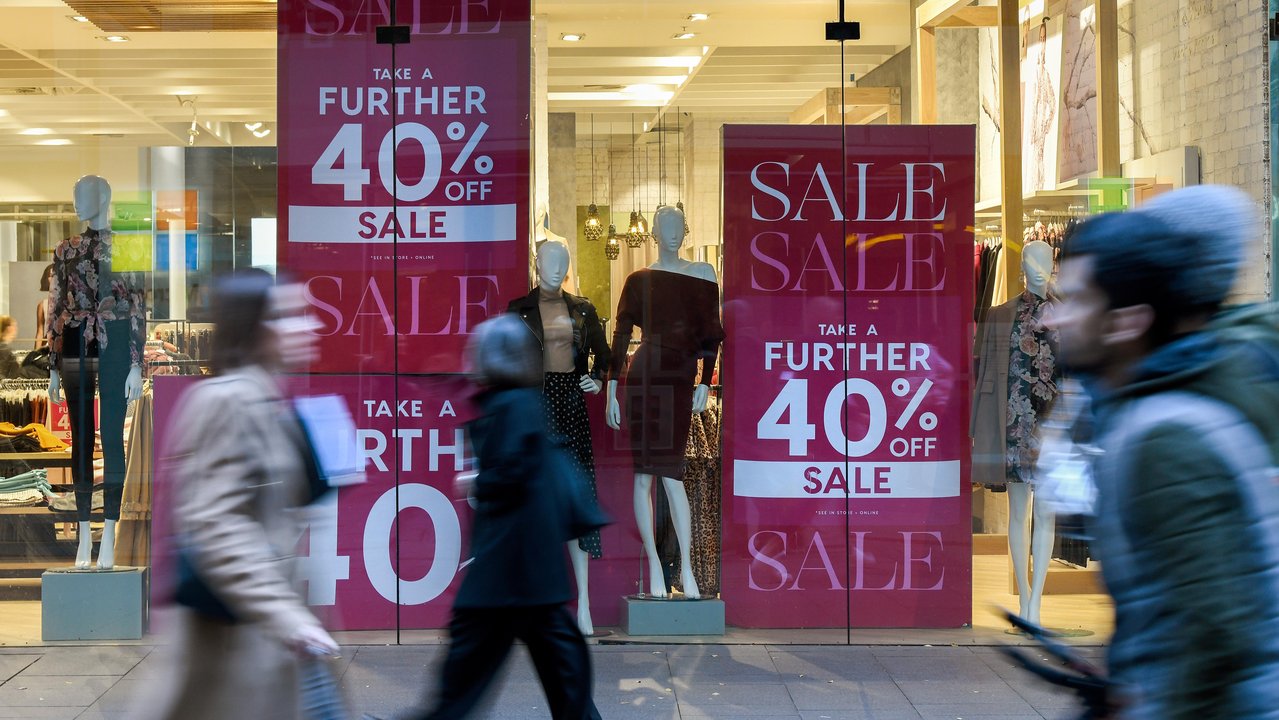
Monthly inflation spiked unexpectedly in July, although the Reserve Bank takes its guidance from less volatile quarterly figures, which are expected to show price growth remaining subdued when next updated in late October.
But combined with Wednesday’s GDP figures, they indicate the economy is running hotter than thought, reducing the urgency for the RBA to lower rates.
The annual economic growth rate climbed from an upwardly-revised 1.4 per cent recorded in March.
Treasurer Jim Chalmers said Australia’s economy was gathering momentum.
“This is the private sector recovery that we were planning for, preparing for and hoping for,” he told reporters as he used a Powerpoint presentation to highlight the transition from public- to private sector-led growth.
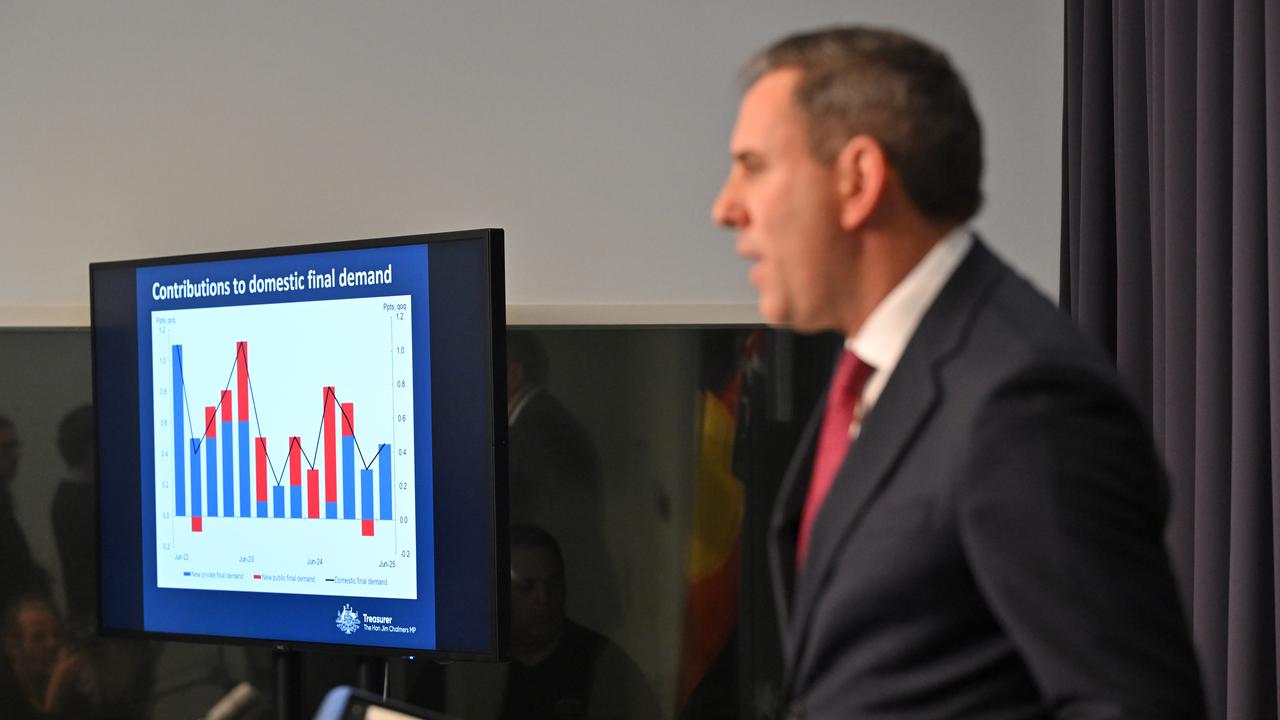
On a quarterly basis, the nation’s economy grew by 0.6 per cent.
Australia avoided dropping back into a per capita recession.
GDP growth per capita was up 0.2 per cent per person, after a drop of 0.2 per cent on a per capita basis the previous quarter.
It’s only the second quarter out of the past 10 that each Australian has seen an increase in their share of GDP – a crude measure of household living standards, because it accounts for growth in the size of the population.
Net disposable income per person grew at 0.4 per cent over the year, boosting consumption, with the household saving ratio falling from 5.2 per cent to 4.2 per cent.
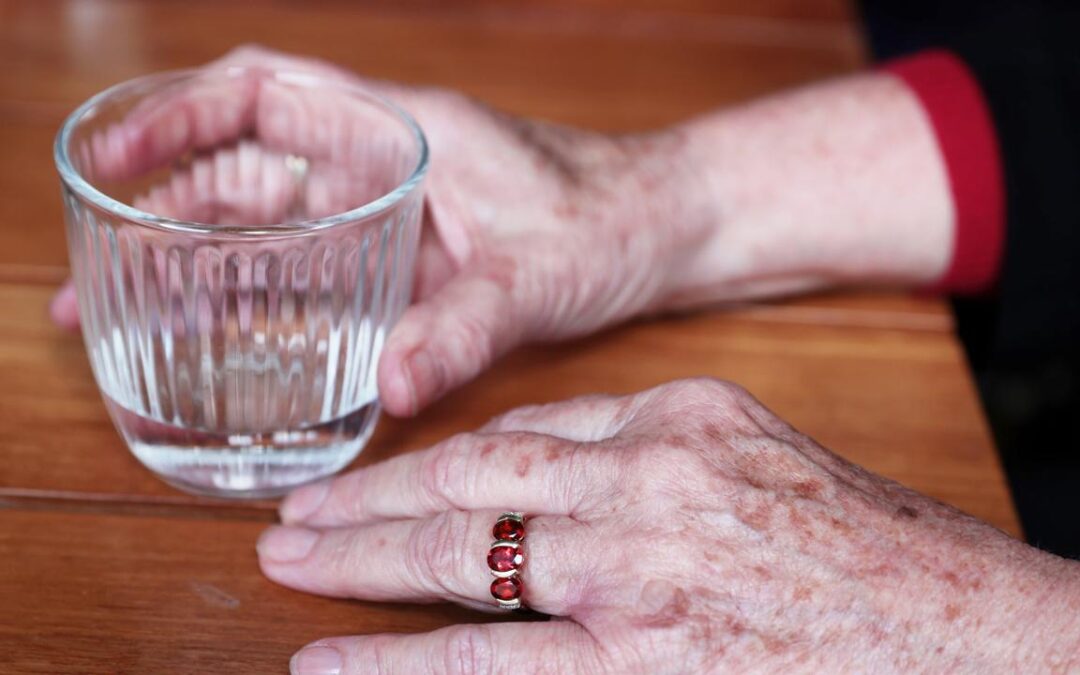
Home care help kicks in sooner after political backflip
Tens of thousands of Australians will get earlier access to a home care package over coming months after the federal government caved to opposition demands to avoid an embarrassing political defeat.
Facing the prospect of losing its first Senate vote since the election, Labor agreed to support a push from the coalition, Greens and some independents to bring forward the release of 20,000 home care spots.
The government planned to delay the rollout of extra home care packages until October, claiming the pause was needed to help the industry prepare.
But it has been facing mounting pressure to act sooner, after revelations the waitlist for care at home has ballooned to about 200,000 people and providers’ insistence they were prepared to deliver.
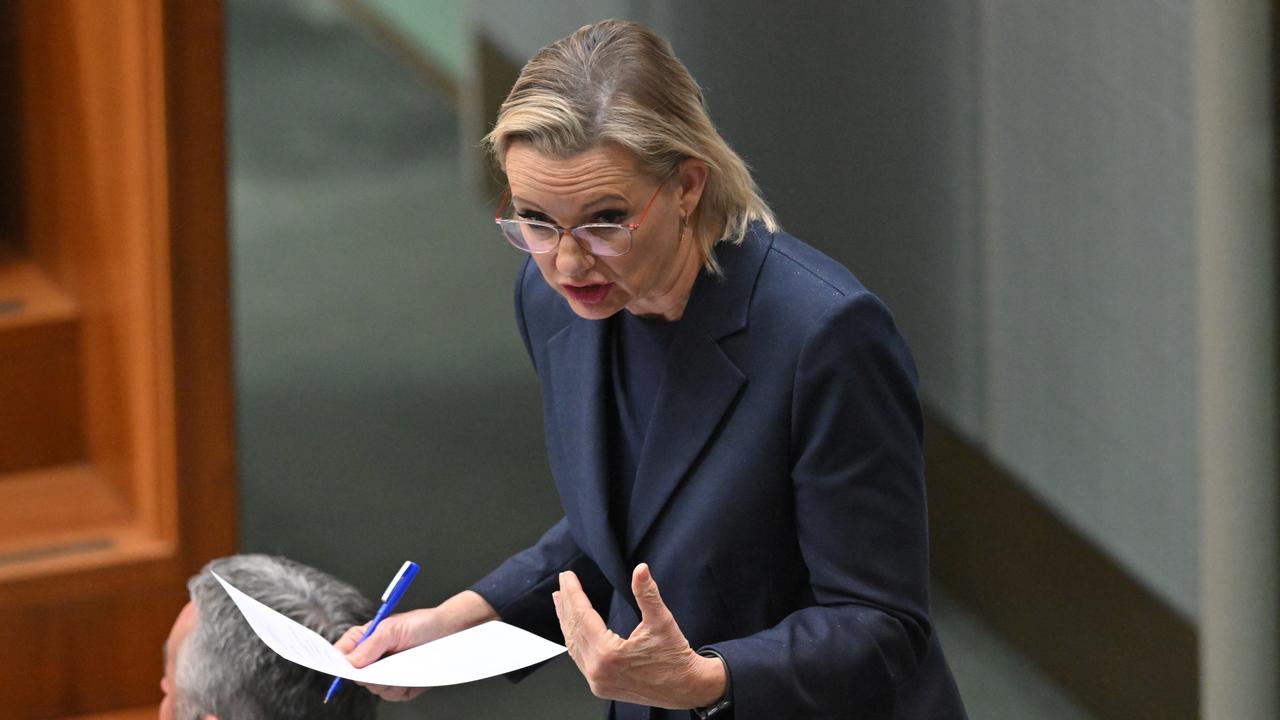
Opposition Leader Sussan Ley said Labor had caved in to demands for earlier access.
“Labor has been dragged kicking and screaming to implement what we have spent this week demanding that they do,” she told reporters in Canberra on Wednesday.
The first 20,000 home care spots will be rolled out before the end of October.
Another 20,000 will be made available in November and December and the remaining 43,000 will be released over the first half of next year.
Health and Ageing Minister Mark Butler admitted the additional places would be a challenge, but was confident the sector had enough staff to deliver them.
“I don’t pretend it’s easy,” he said.
“The government knows that it is hard to staff all of these services.”
Mr Butler said negotiations with the opposition were long and hard fought.
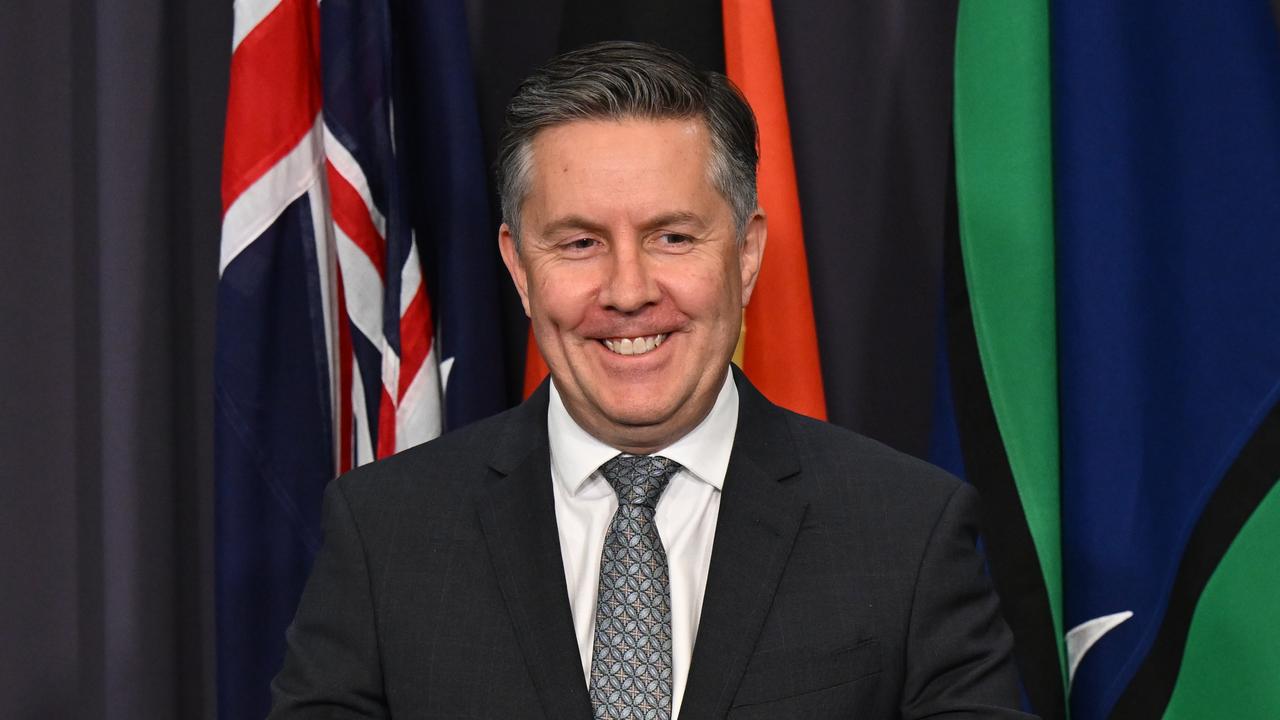
Opposition aged care spokeswoman Anne Ruston agreed providers were ready.
“The sector had told us repeatedly… they can deliver these packages,” she said.
“And now today, apparently the government’s actually come to the same realisation that the rest of us have been here for quite some time.”
Bringing forward the extra places will also increase pressure on the nation’s finances, but the government is declining to release an exact figure, only saying it’ll be detailed in the next federal budget.
Pressure on the aged care system is expected to ramp up over coming years, as Baby Boomers begin entering nursing homes, or require more support at home.
“We are about to hit a period of very significant demand,” Mr Butler said.
A spokesman for peak body Ageing Australia welcomed the decision.
“Providers are ready to act immediately and deliver more packages across Australia,” he said.
“This is the start of the long road to getting people off wait lists and getting the care they need.”

ABC accused of ‘performative’ regret over fired journo
The ABC has been accused of paying lip service to an apology after arguing against a $350,000 fine for illegally sacking journalist Antoinette Lattouf.
Lattouf won an unlawful termination case against the national broadcaster in June after she was sacked from a casual role on ABC Radio Sydney’s Mornings program in 2023.
The Federal Court awarded Lattouf $70,000 in damages after she was dismissed three days into a five-day hosting stint, following a co-ordinated campaign of complaints from pro-Israel lobbyists.
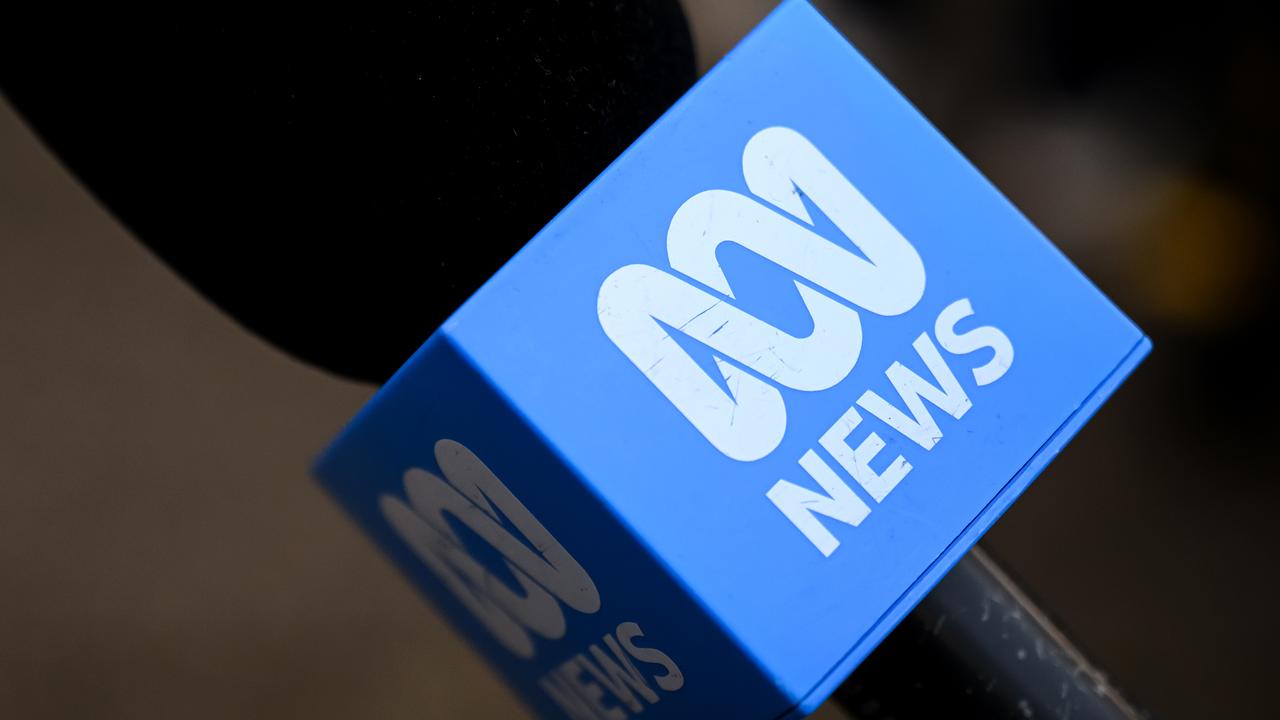
has asked gas
Since then the ABC submitted it should be fined between $37,560 and $56,340, but Lattouf wants nearly 10 times that.
A fine of $300,000 to $350,000 was necessary to prevent future breaches, her lawyers told Justice Darryl Rangiah on Wednesday.
The journalist’s lawyers also criticised the broadcaster’s apology related to its handling of the decision to remove Lattouf as self-serving.
“The expressions of regret … are performative,” Oshie Fagir told the ABC’s chief people officer on Wednesday.
Deena Amorelli dismissed the claim, saying the court ruling had “reverberated throughout the organisation”.
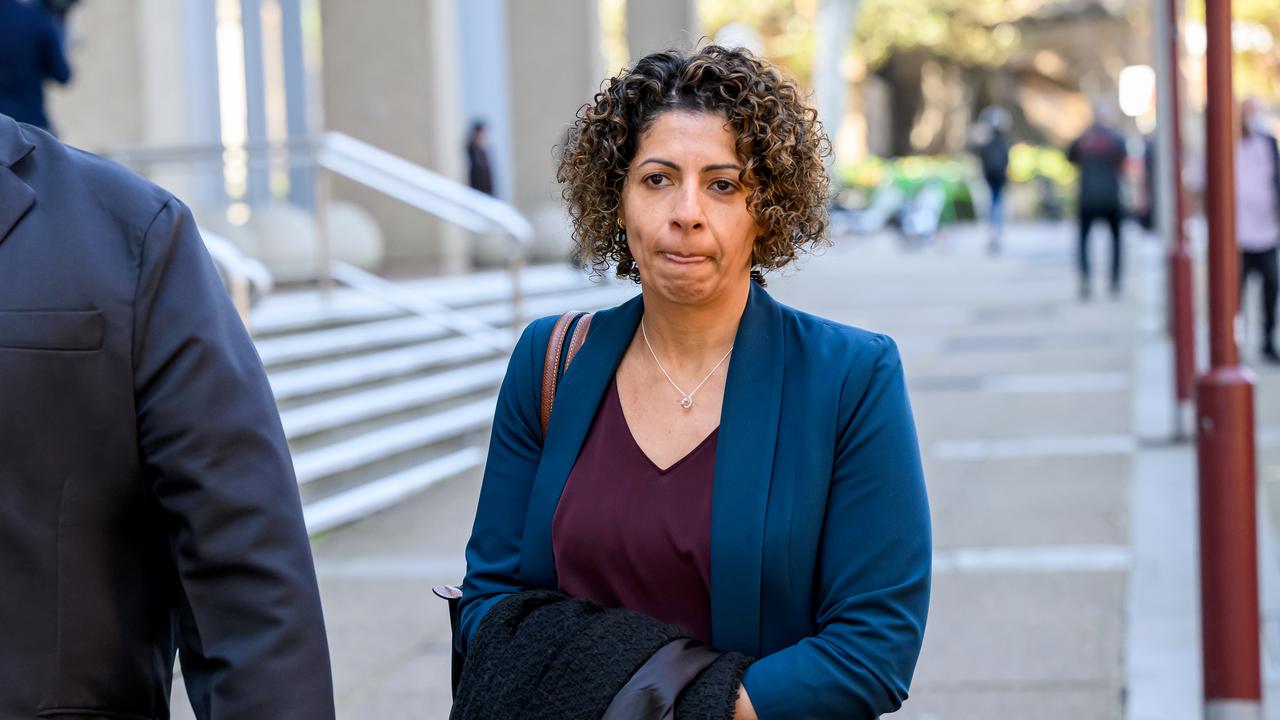
However, she acknowledged the outcome was yet to prompt an inquiry into why Lattouf was sacked, including why the email complaints led to the illegal decision.
Remedial action taken by the ABC was limited to a one-hour training session delivered to the ABC board and executive leadership team, Ms Amorelli said.
“We have not conducted independent investigations,” she added.
“We have reflected on the decision handed down by Your Honour and the lessons learned from that.”
Justice Darryl Rangiah in June found the ABC breached employment law by dismissing the journalist for reasons that included her political opinions.
Lattouff, who has Lebanese heritage, shared a Human Rights Watch post saying Israel was using starvation as a “weapon of war” in Gaza before her position was terminated in December 2023.
Her lawyers on Wednesday argued the question yet to be determined was “what level of sting is needed” to ensure the ABC doesn’t repeat its behaviour when receiving complaints about an employee.
The $37,560 figure put forward by the ABC was “an infinitesimally small amount of money in context of the ABC’s financial and budgetary position,” Mr Fagir said, referencing the broadcaster’s $1.016 billion annual budget.
Lattouf offered to settle the case for $85,000 in August 2024, according to her lawyer Josh Bornstein after her damages award, along with other conditions including an apology and another five radio shifts.
But ABC managing director Hugh Marks previously said the extra radio slots were a sticking point because they could compromise editorial independence from external influence.
Justice Rangiah found the broadcaster was under pressure after an orchestrated campaign of complaints against Lattouf by a pro-Israel lobbyist group.
The ABC did not give her the chance to defend the allegations and instead showed her the door, the judge found.